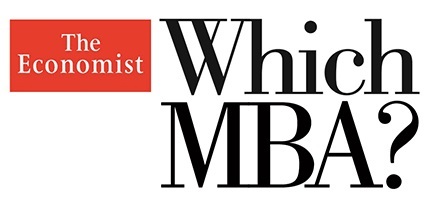| Continuous development |
| Life is motion. We are sure that creative search is the natural state of the modern intellectual. Calmness on what has been achieved, resting on our laurels can lead to a fatal halt both in science and in business.
Therefore, we are always in dynamics: we develop the educational services market, create new knowledge, introduce new technologies and teaching methods. |
| Openness and multiculturalism |
| We are open to new knowledge, experience, opinions and cultural diversity. People are different, and they all feel comfortable in the GSOM SPbU community. The principles of mutual respect help us not only to accept, but also to share our practices, ideas and knowledge with the international academic and business communities.
We know that from openness to discovery there is less than one step. |
| Responsible Leadership |
| Leadership is a responsibility, and we are aware of this. Therefore, our benchmark is the UN Sustainable Development Goals system. The measure of our effectiveness is the contribution that we make to its achievement, while simultaneously building mutually beneficial relationships with all stakeholders. We strive for an ideal business school model that has a positive impact on society and the environment. |
| Customer focus |
| According to all the requirements of business education is a product that must meet the needs of customers: students who enter GSOM SPbU to become specialists in demand in the labor market, and employers who shape this labor market. We create a unique product by being sensitive to the needs of the market and helping our alumni throughout their careers.
We have common interests. |
| A team of like-minded people |
| We are more than just a group of people — we are a team united by common principles and goals, we are a community of people who have close life values. Together we - teachers, students, alumni, employees of GSOM SPbU - form a trust-based culture of the Business School based. We share energy and inspiration with each other on the way to achieving results. Therefore, our community does not end after graduation, but moves to a new level of relationships. |
| Professionalism |
| The main professional codes of any representative of GSOM SPbU are ambitious goals, responsibility for its achievement and willingness to take on commitments. Everyday we are doing our job better than anyone else, and better than we did yesterday. |


FinancialTimes
The rankings of the international business newspaper Financial Times (FT), published in more than 20 countries around the world, are a generally accepted indicator of the quality of a business school or an individual program. Along with rankings from Business Week, The Economist, and the Wall Street Journal, the FT serves as a guiding choice for many MBA and corporate program's students, as well as prospective students of Master in Management and Finance programs.
An integrative ranking that evaluates leading business schools based on program performance:
The ranking evaluates educational programs according to a number of criteria, including:
It is a ranking of Master in Management programs, compiled on the basis of data obtained from business schools and their alumni, which are interviewed anonymously.
Only business schools with at least one of the international accreditations: AACSB and EQUIS can take part in the ranking.
A total of 17 criteria are taken into account: the rate of salary growth over three years, career growth, support for a business school in career development, the percentage of alumni who got a job three months after graduation, the number of foreign teachers and others. And, of course, one of the main indicators is the average salary of alumni three years after graduation.

WhichMBA? The Economist
The ranking of Master programs was first presented by the influential international magazine The Economist in 2017. The ranking is updated every two years.
A place in the ranking "WhichMBA?" is determined based on four criteria:
The collection of information is carried out in two stages: in the first stage, the Business school provides information, and the main quantitative indicators are determined, in the second, students and the last year alumni answer questions. Upon completion of the collection of information, The Economist verifies the information received.

Quacquarelli Symonds
Quacquarelli Symonds (QS) is a British company specialising in the analysis of higher education institutions around the world. In 2017, for the first time, a portfolio of rankings for Master programs in Business Analytics, Marketing, Corporate Finance and Management was prepared, which took into account several criteria at once. The methodology criteria include the characteristics of the faculty, the academic reputation of the business school, and the alumni employment rates.
QS evaluates MBA educational programs according to the following criteria:

При использовании данного сайта Вы подтверждаете свое согласие на использование ВШМ СПбГУ cookie файлов. С подробной информацией Вы можете ознакомиться, перейдя по ссылке.